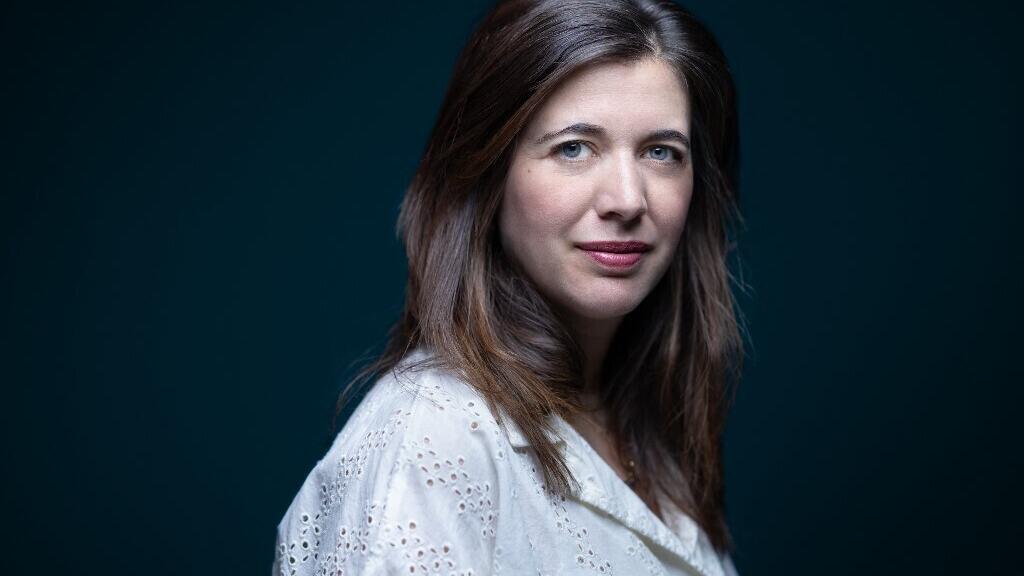
Julie Brafman, a journalist with the French daily Libération has won the 87th Albert Londres Prize, the most prestigious award in the French-speaking press, for her legal reporting.
Winner of the print journalism category, Julie Brafman said she was "very happy" that the award "highlights" the unique practice of court reporting.
"Court reporting is a wonderful area of journalism," which allows us to tell "human stories," she told French news agency AFP.
She was rewarded for her articles on two trials that made headlines in French legal news - that of the child sex offender surgeon Joël Le Scouarnec and the robbers of the American star Kim Kardashian.
The prize recognised Brafman's work on two other more confidential cases, one of a shaken baby in Alsace in eastern France and a patricide near the western city of Angers.
"In addition to the trials that make the news, I choose to cover others, off the radar, when I believe the case says something about society and human feelings," Brafman told French news agency AFP.
The jury, made up of previous prize winners and journalists announced their decision at a ceremony in Beirut on Saturday.
Poetic precision
Brafman was complimented on her "intelligent empathy" that takes the reader into the world of trials, as well as "the poetic precision of her stories, the depth of her analysis," the jury said in a press release.
Created in 1933 in tribute to French journalist Albert Londres (1884-1932), the father of modern journalism, the prize is awarded €5,000 to each winner, who must be under 41 years of age.
The audiovisual reporting prize was created in 1985, and the prize for the best investigative and reporting book was created in 2017.
Russian journalist exiled in Paris has 'no regrets' over criticising Ukraine war
Brafman joined Libération in 2016 after working for several magazines and also for the television show Faites entrer l’accusé (Call the witness to the stand) as an investigator and director. She had just published Vertiges de l’aveu (Dizzy confessions) (Stock), a reflection on the important role of confession in criminal justice.
Working in the newspaper's investigations department for four years, she devoted herself to long format stories.
"Court reporting is a space for personal perspective, for grand narratives, for literary adventure," she says. "I don’t believe in journalistic objectivity, but in fidelity and honesty. In sensitivity, empathy, and delicacy."
Russia, Havana
The Albert Londres book prize was awarded to Franco-Russian Elena Volochine for Propagande. L’arme de guerre de Vladimir Poutine (Propaganda, Putin's Weapon of War).
The television prize went to Jules Giraudat and Arthur Bouvart for Le Syndrome de La Havane (The Havana Syndrome), a documentary series on the Canal+ channel that resembles a spy film.
'Nowhere in Gaza is safe' says RFI correspondent amid call for global media access
A medal of honor was also awarded to Palestinian journalists in the Gaza Strip, represented at the ceremony by Adel Zaanoun, AFP bureau coordinator in Gaza, to recognize "the essential work of all reporters in the field," the jury said.
They pointed to the fact that the Israeli-Palestinian conflict has killed more journalists than during the two world wars of the 20th century.
The Albert Londres Prize organisers also called for the foreign press to "finally be allowed to enter" the Palestinian territory.
Beirut was due to host the Albert Londres Prize in 2024, but Israeli bombings in several regions of Lebanon forced the jury, made up of former winners, to repatriate their work to Paris.
In 2024, it was Le Monde journalist Lorraine de Foucher who won the print journalism prize for her reports and investigations into the rapes of Gisèle Pelicot in Mazan, the rapes of migrants and also the victims of the porn industry.
(with AFP)







